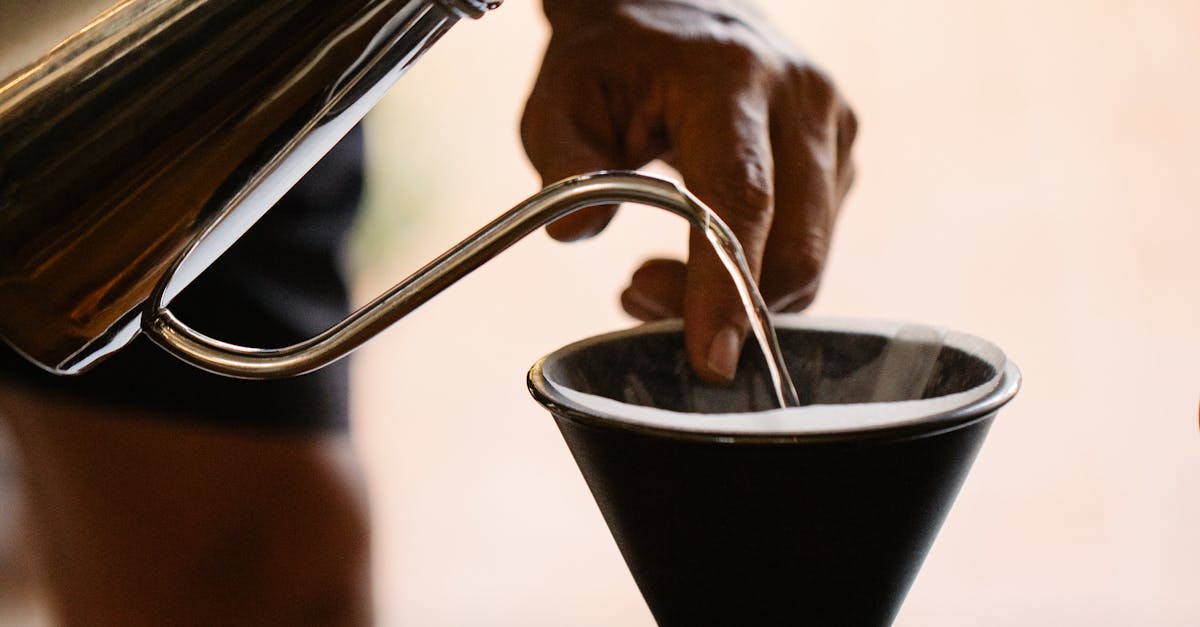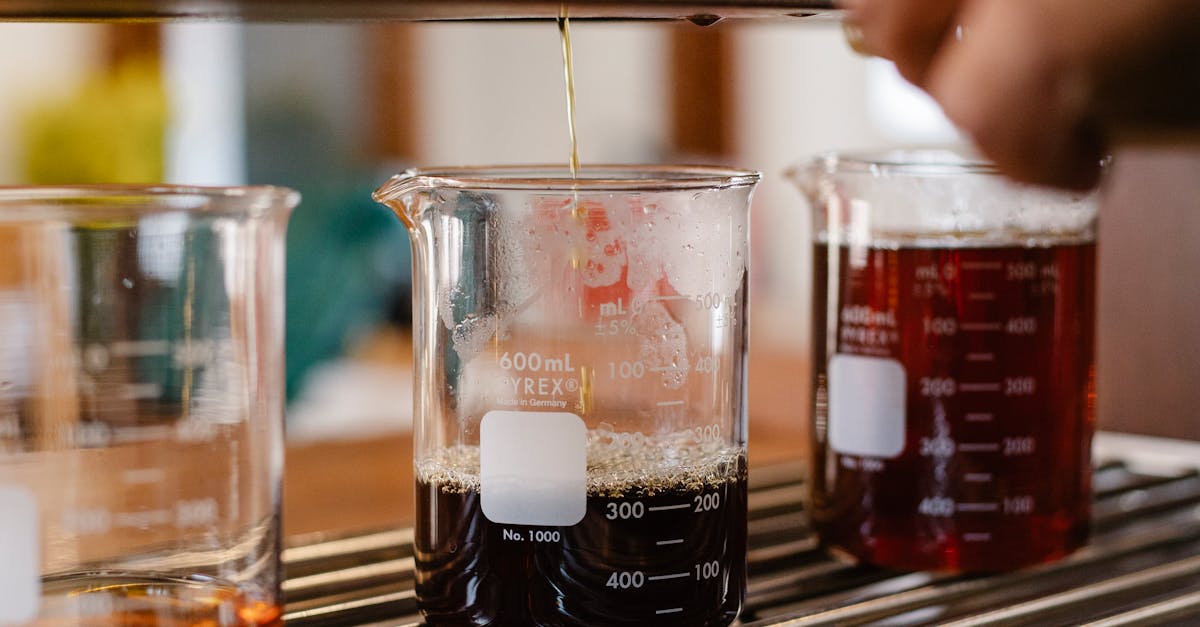
Table Of Contents
Circulating Pumps
Circulating pumps play a crucial role in hot water heating systems by facilitating the flow of water throughout the entire system. They ensure that hot water moves efficiently from the boiler to various points of use, such as faucets and radiators. Without a properly functioning circulating pump, the system would struggle to maintain adequate water pressure and heat distribution. This would lead to inefficiencies and discomfort in the home.
In the realm of Hot Water System Parts and Accessories, selecting the right circulating pump is essential for optimizing performance. There are various types of pumps available, ranging from single-speed to variable-speed models, each designed to meet different heating demands. A well-chosen circulating pump not only improves energy efficiency but also enhances the longevity of the heating system by reducing wear and tear on other components.
How Circulation Enhances Efficiency
The efficiency of a hot water heating system heavily relies on effective circulation of water throughout the entire system. Circulating pumps play a crucial role in maintaining consistent flow, ensuring that hot water moves from the heat source to various points of use. By keeping water moving, these pumps minimize standby heat loss, allowing the system to deliver hot water quickly, reducing wait times and conserving energy. This careful regulation of flow not only enhances user comfort but also translates into lower energy bills.
Understanding the relationship between circulation and system efficiency is vital for optimizing performance. When hot water travels through insulated pipes, it retains heat, preventing energy loss. Well-structured Hot Water System Parts and Accessories, including high-quality pumps and properly sized piping, contribute to minimizing friction and resistance within the system. Properly designed circulation ensures that every component of the heating system works harmoniously, ultimately extending the lifespan of the equipment and improving overall efficiency.
Expansion Tanks
Expansion tanks play a critical role in maintaining the safety and efficiency of a hot water heating system. They provide additional space for the heated water to expand as it warms up, preventing excessive pressure build-up in the system. Without an expansion tank, the expansion could lead to damage in various components, including pipes, fittings, and the water heater itself. Choosing the right size and type of expansion tank can significantly impact the overall performance and longevity of the system.
In addition to protecting against pressure surges, expansion tanks can also contribute to improved energy efficiency. By accommodating changes in water volume during heating cycles, they help maintain a more stable pressure within the system. This stability ensures that the circulating pumps and other hot water system parts and accessories operate optimally. Proper installation and maintenance of the expansion tank are essential for maximizing these benefits, resulting in a more reliable hot water supply.
Purpose and Benefits in a Heating System
Expansion tanks play a crucial role in maintaining the efficiency and safety of a hot water heating system. They are designed to absorb excess water pressure that builds up due to thermal expansion when the water is heated. By accommodating this pressure fluctuation, expansion tanks prevent potential damage to pipes, fixtures, and the heating system itself. This proactive measure contributes to the longevity of the entire system, allowing it to operate smoothly without unnecessary strain.
In addition to their protective function, expansion tanks help optimize the overall performance of the heating system. They promote consistent water pressure, ensuring that hot water is delivered effectively to faucets and appliances throughout the home. By incorporating high-quality hot water system parts and accessories, including expansion tanks, homeowners can enhance comfort while minimizing energy costs. Proper maintenance of these components ensures that the heating system runs efficiently and reliably over time.
Heat Exchangers
Heat exchangers play a crucial role in the operation of any hot water heating system. They facilitate the transfer of heat between two fluids, allowing for efficient heating without direct contact. This component is essential for maximizing energy usage in the system. Heat exchangers come in various designs, including shell-and-tube and plate types, each suited to specific applications and efficiency needs.
In the context of hot water systems, these devices are responsible for raising the temperature of water that circulates through the system. They enable the heating element to warm up the water used for domestic purposes or space heating. Understanding the role of heat exchangers is vital for anyone looking to optimize their system. Pairing them with other hot water system parts and accessories can significantly enhance overall performance and energy efficiency.
Functionality in Water Heating
Heat exchangers play a crucial role in transferring energy from one medium to another, particularly in hot water heating systems. They facilitate the movement of heat from the combustion gases or water to the fluid that will be heated, ensuring an efficient method of energy transfer. Their design varies, frequently utilizing materials like copper or stainless steel due to their excellent thermal conductivity. By maximizing surface area and optimizing flow patterns, these systems increase the overall efficiency of hot water production.
In the context of hot water heating, different types of heat exchangers cater to varying needs. For instance, plate heat exchangers provide efficient heat transfer in a compact design, while shell-and-tube models are better suited for larger systems. Understanding these components is essential for anyone looking to maintain or upgrade their hot water system. Familiarity with these essential hot water system parts and accessories can greatly influence both performance and longevity, making informed choices vital for effective heating solutions.
FAQS
What are the main components of a hot water heating system?
The main components of a hot water heating system include circulating pumps, expansion tanks, and heat exchangers. Each of these parts plays a crucial role in ensuring the system operates efficiently and effectively.
How does a circulating pump work in a hot water heating system?
A circulating pump moves hot water from the boiler to the designated areas of the home and back again. It ensures a constant flow of hot water, which enhances the overall efficiency of the heating system.
What is the purpose of an expansion tank?
An expansion tank is designed to accommodate the expansion of water as it heats up, preventing excessive pressure buildup in the system. This helps to maintain safety and prolongs the lifespan of the hot water heating system.
Can you explain the function of heat exchangers in water heating?
Heat exchangers transfer heat between two fluids—typically water and a heating medium—without mixing them. In a hot water heating system, they facilitate efficient heat transfer, ensuring that the water reaches the desired temperature quickly and effectively.
How can I improve the efficiency of my hot water heating system?
To improve the efficiency of your hot water heating system, consider regular maintenance of the components, such as flushing the system, checking the circulation pump, and ensuring your expansion tank is functioning properly. Additionally, optimizing the insulation around pipes and setting the thermostat to an appropriate level can help enhance efficiency.





























